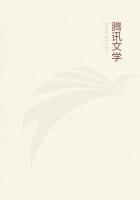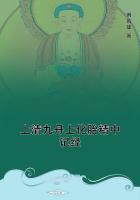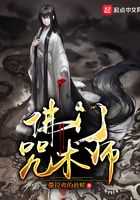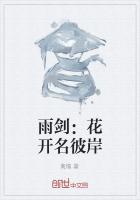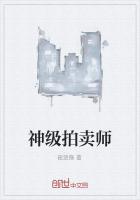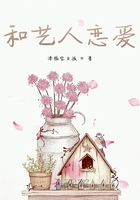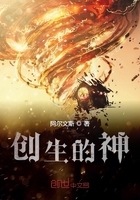"I thought it the most loathsome exhibition I'd ever seen!" she broke out. "How can they--how dare they--what do you mean by it--
Mr. Bax, hospital nurses, old men, prostitutes, disgusting--"
She hit off the points she remembered as fast as she could, but she was too indignant to stop to analyse her feelings. Mrs. Flushing watched her with keen gusto as she stood ejaculating with emphatic movements of her head and hands in the middle of the room.
"Go on, go on, do go on," she laughed, clapping her hands.
"It's delightful to hear you!"
"But why do you go?" Rachel demanded.
"I've been every Sunday of my life ever since I can remember,"
Mrs. Flushing chuckled, as though that were a reason by itself.
Rachel turned abruptly to the window. She did not know what it was that had put her into such a passion; the sight of Terence in the hall had confused her thoughts, leaving her merely indignant.
She looked straight at their own villa, half-way up the side of the mountain. The most familiar view seen framed through glass has a certain unfamiliar distinction, and she grew calm as she gazed.
Then she remembered that she was in the presence of some one she did not know well, and she turned and looked at Mrs. Flushing.
Mrs. Flushing was still sitting on the edge of the bed, looking up, with her lips parted, so that her strong white teeth showed in two rows.
"Tell me," she said, "which d'you like best, Mr. Hewet or Mr. Hirst?"
"Mr. Hewet," Rachel replied, but her voice did not sound natural.
"Which is the one who reads Greek in church?" Mrs. Flushing demanded.
It might have been either of them and while Mrs. Flushing proceeded to describe them both, and to say that both frightened her, but one frightened her more than the other, Rachel looked for a chair.
The room, of course, was one of the largest and most luxurious in the hotel. There were a great many arm-chairs and settees covered in brown holland, but each of these was occupied by a large square piece of yellow cardboard, and all the pieces of cardboard were dotted or lined with spots or dashes of bright oil paint.
"But you're not to look at those," said Mrs. Flushing as she saw Rachel's eye wander. She jumped up, and turned as many as she could, face downwards, upon the floor. Rachel, however, managed to possess herself of one of them, and, with the vanity of an artist, Mrs. Flushing demanded anxiously, "Well, well?"
"It's a hill," Rachel replied. There could be no doubt that Mrs. Flushing had represented the vigorous and abrupt fling of the earth up into the air; you could almost see the clods flying as it whirled.
Rachel passed from one to another. They were all marked by something of the jerk and decision of their maker; they were all perfectly untrained onslaughts of the brush upon some half-realised idea suggested by hill or tree; and they were all in some way characteristic of Mrs. Flushing.
"I see things movin'," Mrs. Flushing explained. "So"--she swept her hand through a yard of the air. She then took up one of the cardboards which Rachel had laid aside, seated herself on a stool, and began to flourish a stump of charcoal. While she occupied herself in strokes which seemed to serve her as speech serves others, Rachel, who was very restless, looked about her.
"Open the wardrobe," said Mrs. Flushing after a pause, speaking indistinctly because of a paint-brush in her mouth, "and look at the things."
As Rachel hesitated, Mrs. Flushing came forward, still with a paint-brush in her mouth, flung open the wings of her wardrobe, and tossed a quantity of shawls, stuffs, cloaks, embroideries, on to the bed.
Rachel began to finger them. Mrs. Flushing came up once more, and dropped a quantity of beads, brooches, earrings, bracelets, tassels, and combs among the draperies. Then she went back to her stool and began to paint in silence. The stuffs were coloured and dark and pale; they made a curious swarm of lines and colours upon the counterpane, with the reddish lumps of stone and peacocks' feathers and clear pale tortoise-shell combs lying among them.
"The women wore them hundreds of years ago, they wear 'em still,"
Mrs. Flushing remarked. "My husband rides about and finds 'em; they don't know what they're worth, so we get 'em cheap. And we shall sell 'em to smart women in London," she chuckled, as though the thought of these ladies and their absurd appearance amused her.
After painting for some minutes, she suddenly laid down her brush and fixed her eyes upon Rachel.
"I tell you what I want to do," she said. "I want to go up there and see things for myself. It's silly stayin' here with a pack of old maids as though we were at the seaside in England. I want to go up the river and see the natives in their camps. It's only a matter of ten days under canvas. My husband's done it. One would lie out under the trees at night and be towed down the river by day, and if we saw anythin' nice we'd shout out and tell 'em to stop."
She rose and began piercing the bed again and again with a long golden pin, as she watched to see what effect her suggestion had upon Rachel.
"We must make up a party," she went on. "Ten people could hire a launch. Now you'll come, and Mrs. Ambrose'll come, and will Mr. Hirst and t'other gentleman come? Where's a pencil?"
She became more and more determined and excited as she evolved her plan.
She sat on the edge of the bed and wrote down a list of surnames, which she invariably spelt wrong. Rachel was enthusiastic, for indeed the idea was immeasurably delightful to her. She had always had a great desire to see the river, and the name of Terence threw a lustre over the prospect, which made it almost too good to come true.

